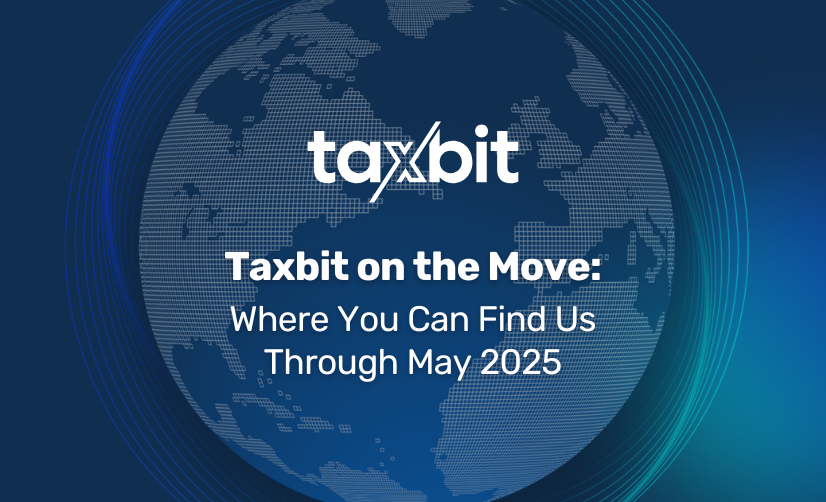Data collection should begin today, and voluntary reporting is encouraged
In November 2021, Congress passed the Infrastructure Investment and Jobs Act (IIJA), which imposed new tax information reporting rules for digital assets. As discussed in more detail here, those rules do the following:
- Define “digital asset” and “digital asset broker” for federal tax purposes
- Require digital asset brokers to provide information returns on digital asset transactions
- Require brokers to share information about the acquisition price of digital assets when such assets are transferred from one broker to another or from a broker to a non-broker
- Require individuals or companies that receive digital assets in excess of $10,000 as part of a trade or business to file a report on the transaction
These requirements were created by expanding existing statutes that have historically applied to brokers and other financial assets such as securities.
The IIJA requirements apply to transactions that occur in tax year 2023, which are then reported in early 2024. As such, brokers and businesses subject to the new reporting requirements would need to start collecting various customer and transaction data on January 1, 2023.
Current and long-standing regulations guide traditional finance brokers and businesses by detailing what they need to report and how. However, the U.S. Treasury Department (“Treasury”) has indicated that it is drafting regulations specifically designed to address the new digital asset reporting requirements. This makes sense because some aspects of the new requirements do not fit squarely within the existing regulatory framework.
For example, the definition of digital asset broker contained in the IIJA is broad and has been subject to some debate. On February 11, 2022, Treasury responded to inquiries from a group of Senators about the scope and interpretation of “digital asset broker” defined in the IIJA. In its response, Treasury indicated that it would consider the legislative history of the IIJA as it undertook rulemaking to implement the statute.
In late October 2022, a Treasury official again explained that proposed regulations implementing the IIJA requirements were in the works and would be issued before year end, but would not come “on Christmas Eve”, and that the proposed regulations would address concerns around the effective date of the requirements.
But It’s Christmas Eve and Still No Regs
So it is now bordering on Christmas Eve and the proposed regulations have not yet been released.
As a result, many digital asset platforms that likely will fall within the definition of a digital asset broker are trying to figure out where they stand (especially given that the IIJA requirements have a statutory effective date requiring certain data to be collected beginning January 1, 2023).
It is not clear why the proposed regulations have not been released. But, since Treasury’s last comments in October, the digital asset ecosystem has been rocked by the collapse of cryptocurrency exchange FTX as a result of alleged criminal conduct by its founder and CEO Samuel Bankman-Fried. This event has resulted in a push for more stringent regulation and consumer protection in the digital asset space. It is possible the fallout of the FTX debacle has caused Treasury to take another look at the draft regulations prior to their release but nobody really knows.
Unfortunately, the delay has left businesses in the ecosystem in a lurch, but some relief has now been provided.
IRS Announcement on IIJA
On December 23, 2022, the IRS issued an Announcement clarifying that digital asset brokers do not need to try to comply with various IIJA reporting requirements beginning January 1, 2023. The announcement further indicated that the Treasury is still on track to issue proposed regulations for notice and comment (likely in early 2023).
The Announcement did not set an explicit timeline for when the proposed regulations would be released, but the use of an Announcement rather than some other form of guidance indicates that the regulations can likely be expected soon.
The Announcement highlights the following points:
- All brokers (digital asset brokers included) may report gross proceeds and basis as required by the existing law and regulations under section 6045 as of December 23, 2022.
- Traditional finance brokers may furnish statements on transfers of covered securities as required by the existing law and regulations under section 6045A as of December 23, 2022.
- Digital asset brokers will not be required to report or furnish additional information with respect to dispositions of digital assets under section 6045, issue additional statements under section 6045A, or file any returns with the IRS on transfers of digital assets under section 6045A(d) until those new final regulations under sections 6045 and 6045A are issued.
Although the Announcement indicates a moratorium on compliance with the IIJA requirements, it makes a push for voluntary gross receipts reporting on existing Form 1099-B in the coming year. This push is in line with language in the IIJA stating that nothing about the new requirements for digital asset information reporting is intended to indicate that reporting was not previously required.
Notably, the Announcement is silent about any substantive penalty relief. Typically, where the IRS is seeking to provide transitional relief from compliance, it issues a notice expressly stating that penalties will not be imposed for non-compliance. Hopefully, the lack of such a notice is also an indicator that the proposed regulations will be released soon and in conjunction with a notice at that time.
What About Penalties?
Neither Treasury nor the IRS has the authority to change the statutory effective date for the IIJA requirements. However, it is important to understand that compliance with the IIJA requirements must be enforced by the IRS through monetary penalties imposed against those who fail to comply.
Although Treasury has not yet issued proposed regulations, the IRS released its Announcement indicating that regulations are in the works and likely will be issued soon. Even though the Announcement did not expressly grant penalty relief, it is likely such relief may be issued in conjunction with the proposed regulations.
Treasury and the IRS took similar action in 2010 shortly before the existing law requiring the reporting of cost basis and the transfer of cost basis information among brokers for specified securities went into effect. At that time, the new law was set to go into effect on January 1, 2011. Due to a delay in the regulations, the IRS issued a Notice explaining that non-compliance with one requirement of that law – the transfer statement aspect – would not be penalized. The remainder of the law was enforced.
Here, the IRS in conjunction with the Treasury is likely to issue a similar Notice.
So, What Happens Next?
Although penalty relief may be granted for the initial year of IIJA compliance as Treasury works to finalize regulations, businesses should not expect such relief to be extended for a second year. In other words, digital asset brokers should be prepared to conduct full tax information reporting to individuals and the IRS for the 2024 tax year at the latest. Tax identification information should be collected today, and voluntary information reporting for tax year 2023 is encouraged (and can be done so without penalties for errors).
Looking back at the implementation of cost basis reporting and transfer statements in 2010, the regulations implementing those laws were finalized in October 2010, roughly two months before the statutory effective date. Despite the limited time window, the IRS and Treasury only waived penalties for the transfer statement aspect of those laws. This was done because transfer statement reporting was a new concept at that time that required new systems to be built.
The IIJA requirements do not contain such a novel component—they only expand existing rules to cover digital assets. The requirement to send transfer statements to the IRS where a transfer is made to a non-broker is a new concept, but is largely a change in recipient rather than a totally new requirement. Because of this, it is likely that the IRS and Treasury will try to avoid any further delay in implementing the IIJA requirements.
Even prior to the IIJA requirements, the IRS had included information reporting for digital assets as part of its Priority Guidance Plan as far back as 2019 on the premise that existing broker-reporting rules covered digital assets. The IIJA also acknowledged this same premise, explicitly stating that nothing in the IIJA should be construed to indicate that digital assets were not previously subject to information reporting.
Looking ahead into 2023, digital asset brokers should continue to work towards compliance with the IIJA requirements.
As an initial step, brokers can begin ensuring that customers are properly onboarded and certified for tax-reporting purposes. Nothing in the forthcoming regulations will likely impact or alter the requirement to obtain certified tax identification numbers so that information reporting can be completed.
Additionally, the opportunity for a penalty-free trial run provides digital asset brokers with an opportunity to test their current onboarding procedures, and reporting systems before being subjected to penalties for non- or mis-compliance.
How Taxbit Can Help
With current and upcoming clarity on deadlines, data collection, and IRS tax reporting requirements, Taxbit is the right partner to help you achieve 100% compliance. With our enterprise-grade platform and renowned team of compliance experts, you can seamlessly stay up to speed with all the provisions of ever-evolving regulations.








